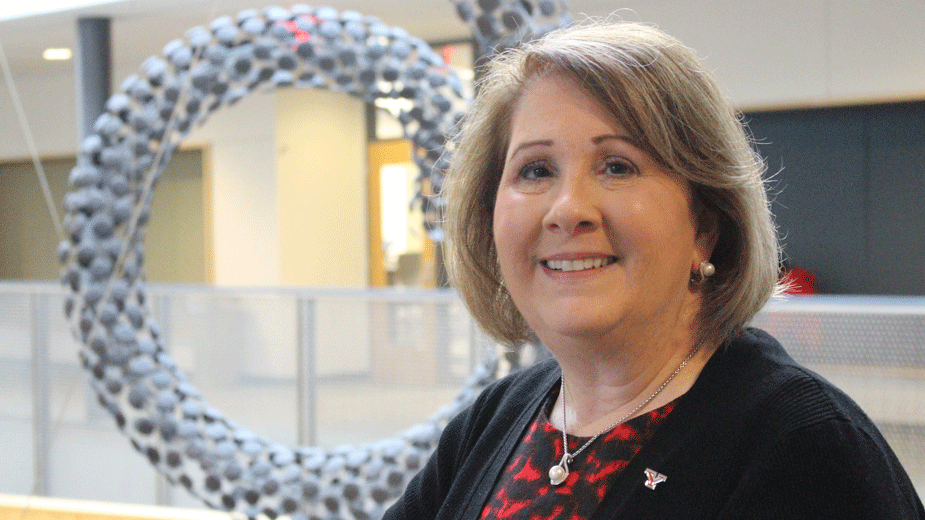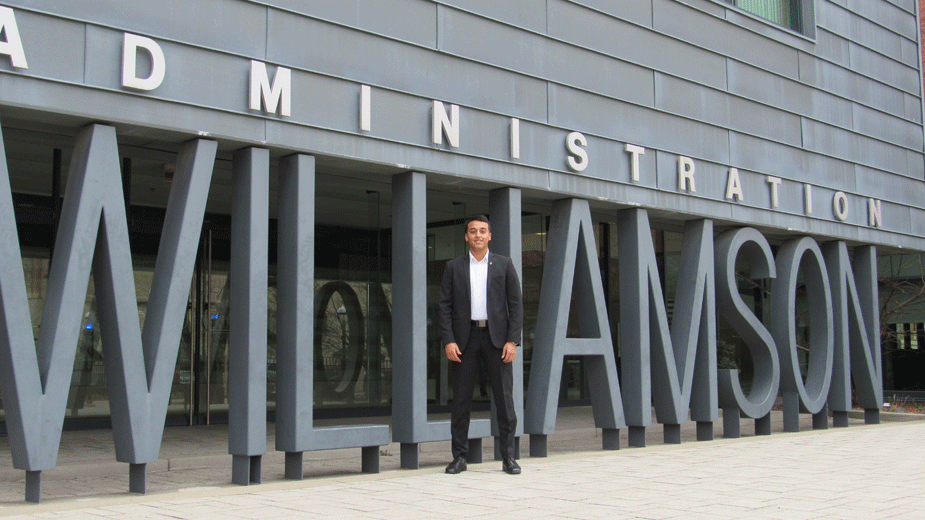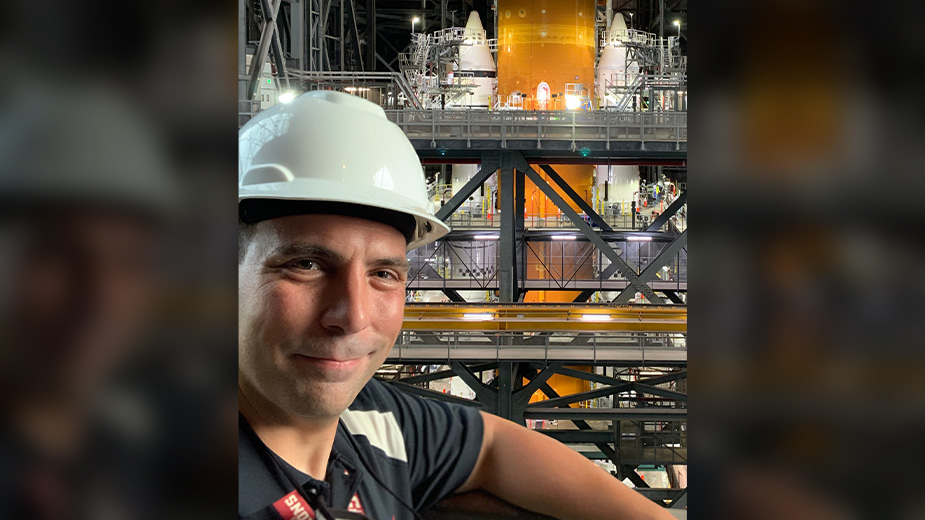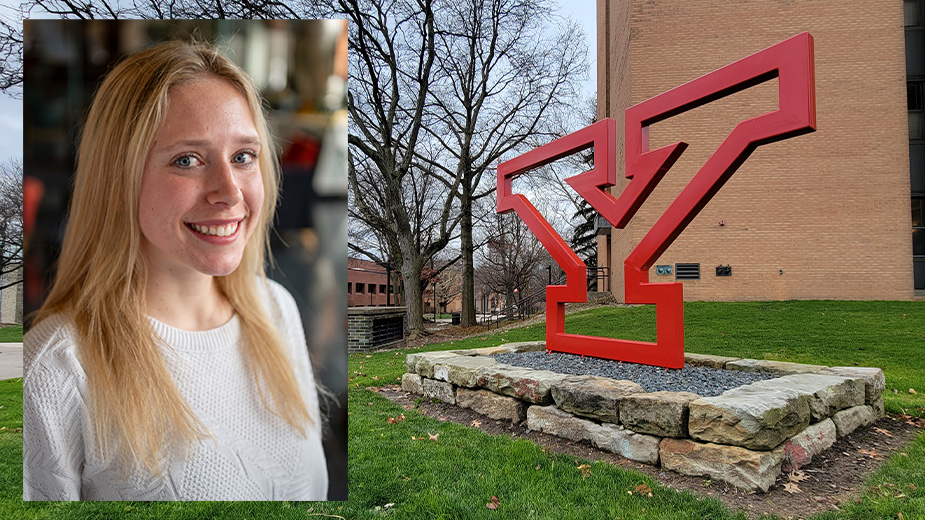YSU’s Williamson College Works to Keep Grads Here
YOUNGSTOWN, Ohio –When Betty Jo Licata came to Youngstown State University as dean of the Warren P. Williamson College of Business, she saw a region with potential for growth.
She began her tenure with appreciation and respect for the area’s past and for those who built it and then did the only thing she knew – moved forward.
For Licata, the university was a foundational pillar for economic development. Her philosophy is investing in people and infrastructure. And 25 years later, that vision has resulted in brain gain: workforce development and a culture of entrepreneurship that drives the Williamson College of Business Administration.
An example is the mindset metamorphosis that occurs with many business students who enter as freshmen professing a desire to leave, but change their minds by the time they’re ready to graduate.
“Many freshmen say they are going to leave. By the time they are seniors, I would say that percentage shifts,” Licata says. “More of them see the value of staying in the Mahoning Valley, so we make sure a good balance of opportunities is available, and a number of students take advantage of those opportunities.”
Her observation is supported by recent statistics from the business school’s Center for Career Management that show nearly 85% of the 183 graduates from the last academic year are employed, attending graduate school or not seeking employment.
“The culture of professionalism we’ve been developing as a professional program is that we know students are coming to study business because they expect they’re going to have a job when they graduate,” Licata stresses.
Working together to be the best is a philosophy she’s ingrained in her staff. Creating a culture of cooperation is an attribute she sees as improving among leaders, civic and community organizations and shaping economic development in the Valley.
“We have a lot of strengths in the Mahoning Valley, but at the same time we’re competing nationally, not just in providing goods and services, but for talent we want to recruit,” she says. “We have to realize that we are on par or better than companies anywhere else.”
As she explains, “A goal of ours is to grow on a competitive scale, to ask ourselves what are our students looking for and how do we develop that diversity of thought.”
Diversity of thought on a community level can also be vital for economic development. And one lesson her experience has taught her is that growth is more than what many people think it is.
“Any part of economic development is a piece of community development,” she says, pointing out that companies want fundamental foundations before building or relocating.

Licata says companies look for access to an existing pool of talent, a university to help develop talent, updated infrastructure, regulations and policies that will support expansion.
“A lot more goes into it than just relocating a company here and talking about jobs all the time. But it’s much broader in terms of infrastructure, finances and quality of your schools and police force and helping those entrepreneurial ventures grow,” she says. “We must take away barriers if we want companies to start up and if we want companies to grow. We want to make it as easy as possible for them to do that.”
A 2018 study by the Congressional Research Service, “Economic Impact of Infrastructure Investment,” finds strong infrastructure is a critical factor in the health and wealth of any country, enabling private businesses and individuals to produce goods and services more efficiently. Short-term effects of government spending on infrastructure result in higher economic output by stimulating demand and in the long term by increasing overall productivity.
“Investments in core infrastructure, defined as roads, railways, airports and utilities, are expected to produce larger gains in economic output than investments in some broader types of infrastructure, such as hospitals, schools and other public buildings,” the authors of the report write.
Licata’s investment in talent, students and the core infrastructure of the business school has led to the college earning national accreditation, construction of a $35 million modern-era building, community partnerships that led to 203 paid internships with regional companies, the school’s own career-management center and nearly 100 employers who come to campus for a recruiting fair every year.
William Vendemia, a longtime professor of management, calls Licata a dynamic force, and why the college of business is where it is today.
The dean created a team culture, he says, that moved the needle on stalled efforts to attain accreditation by the Association to Advance Collegiate Schools of Business – a coveted designation for business schools that only 25% of universities across the country earn.
“She was instrumental and the driving force, telling us we can do this and we can get this done. She got us all organized,” Vendemia recalls. “While locally it may not seem as significant, outside of the area it’s had a great impact.”
The designation is one reason Judin Balella, an international student from Italy, chose YSU to study business.
Balella became familiar with YSU as a high school exchange student in Indiana. The daughter of his host family was living in Youngstown and he remembers coming to visit. When he returned to Ravenna, Italy, he and his father began researching U.S. colleges.
“It helped that I knew about YSU,” Balella says. “There are thousands of colleges all around America and each one has a specialty or something they focus on.” The business school with its national accreditation stood out.
Balella did his research and says he watched every video YSU posted as well as videos on YouTube. He also contacted people on Facebook and used YSU’s app to contact others.
The deciding factors for Balella were free housing – he can live with a host family – and the business school’s accreditation.
“The college of business is awesome, I love it. It’s also the newest building here and they have so many organizations and events like Employer’s Day,” he points out.

Employer’s Day is held twice a year and gives students a chance to meet with employers, similar to a job fair.
Now a sophomore, Balella doesn’t regret his decision. He recently was elected as the incoming president of Pi Sigma Epsilon, a national professional fraternity at the business school. He is also an intern at Sweeney Chevrolet Buick GMC.
Balella says the accessibility to professors was a pleasant surprise.
“I love how it’s so easy to contact faculty and professors. I can say, ‘Hi’ to Dean Licata and she says, ‘Hi’ back. She knows who people are,” he says. “I can email the chair of the department or the dean. They put themselves out there so then we can do the same with other people.”
Since arriving at YSU in 1995, time hasn’t mollified Licata’s drive to make the college and its students better. She’s an intense listener, who gives thought to a question before responding. Vendemia credits her openness with students and faculty for including their input as the building was about to be constructed to make “the building all we wanted it to be.”
Vendemia says her involvement is everywhere, including meeting with students in the freshman-level business course he teaches.
“She comes and meets with all the freshmen; that’s something deans of colleges never do,” he says. “Some might give 10 minutes, but she meets with them for an hour and 15 minutes, telling them who she is and that she’s accessible and lays out what they need to do to be successful,” he says. “It makes an impact and I can see it in students’ eyes.”
Just as Licata believes educators can no longer teach in silos, she says collaboration is paramount in creating and effecting economic development strategies.
“The area is becoming more collaborative” in relation to economic development, she says, pausing before she continues. “Sometimes there’s a perception of competition and I don’t think as much competition as perhaps a lack of clarity as to who does what.”
As examples, she says some organizations might have space and others consulting services or relocation services that can be pooled.
“We have to look at the entire economic development ecosystem,” she says. “We have a tremendous package of services to support our existing companies and companies that may want to start here, but also companies who may want to relocate here. To the extent that we can collaborate more and present a cohesive, integrated set of services, the better served we’re going to be.”
Licata believes that changing mindsets begins with respect for the region’s past and what has been done, but also requires conversations focused on the present and the future. A starting point, she says, is continuing to develop an appreciation for what exists and the variety of opportunities local communities offer.
“Our image has changed a little but we need to change the narrative of who we are. We have a diversified economy. It’s no longer a single industry. But old perceptions die hard,” she says. “People get very comfortable in their roles.”
She uses herself as an example of basically driving to and from work in a vacuum.
“That’s a challenge we all can place upon ourselves; to see something new and see the development that’s going on,” she says, pointing out that students from outside the area have eye-opening experiences when they come to YSU.
Time, talent and tenacity have allowed the business school to advance and Licata doesn’t plan to slow down as she acknowledges the never-ending race to attract and retain talent.
Vendemia, who grew up in Austintown, admits he didn’t think he would stay in this area, but he watched that idea morph into 38 years of teaching at YSU and being part of transformation of the business school. The value of staying here? “It’s been good for me and my family.”
Copyright 2024 The Business Journal, Youngstown, Ohio.


